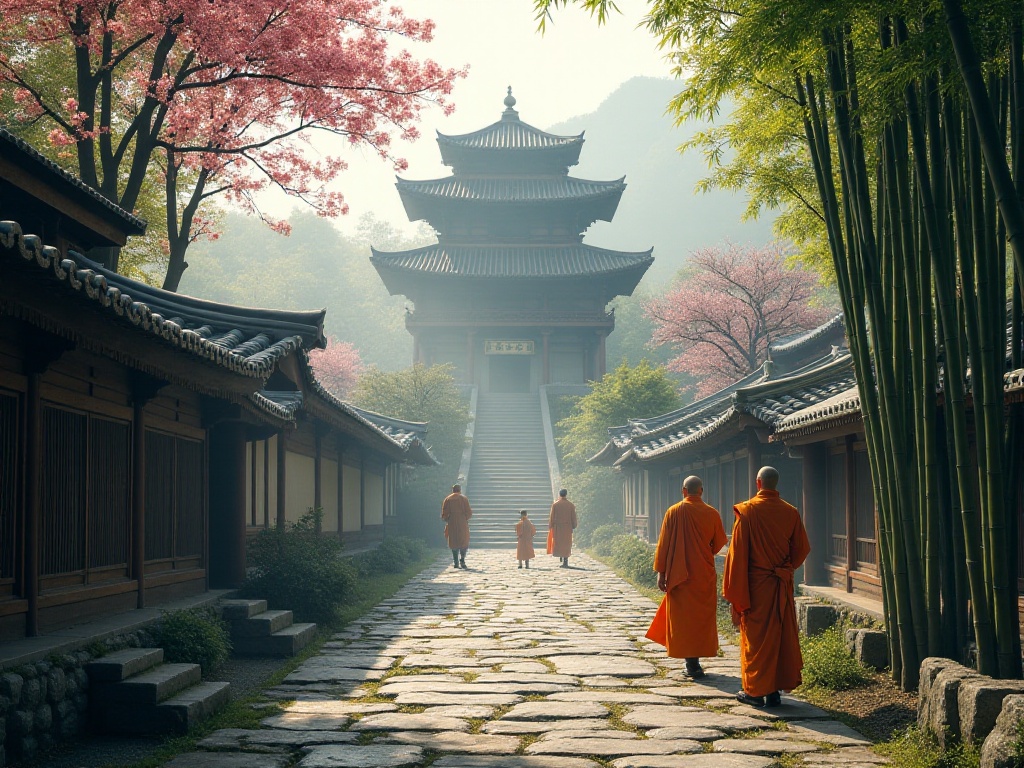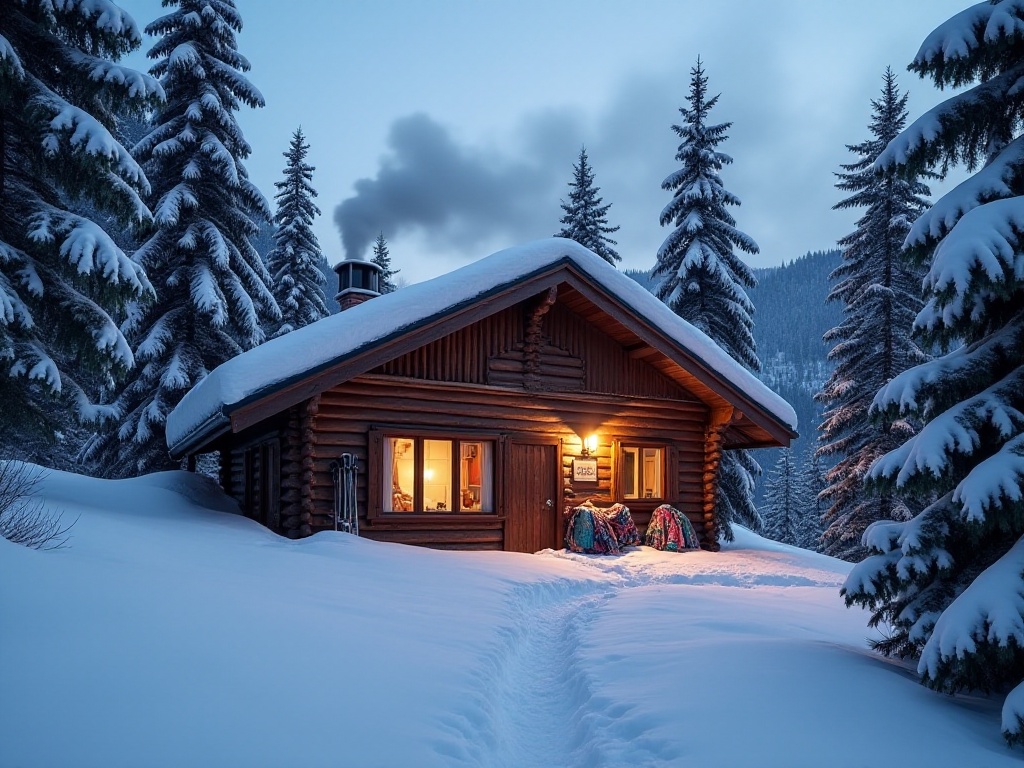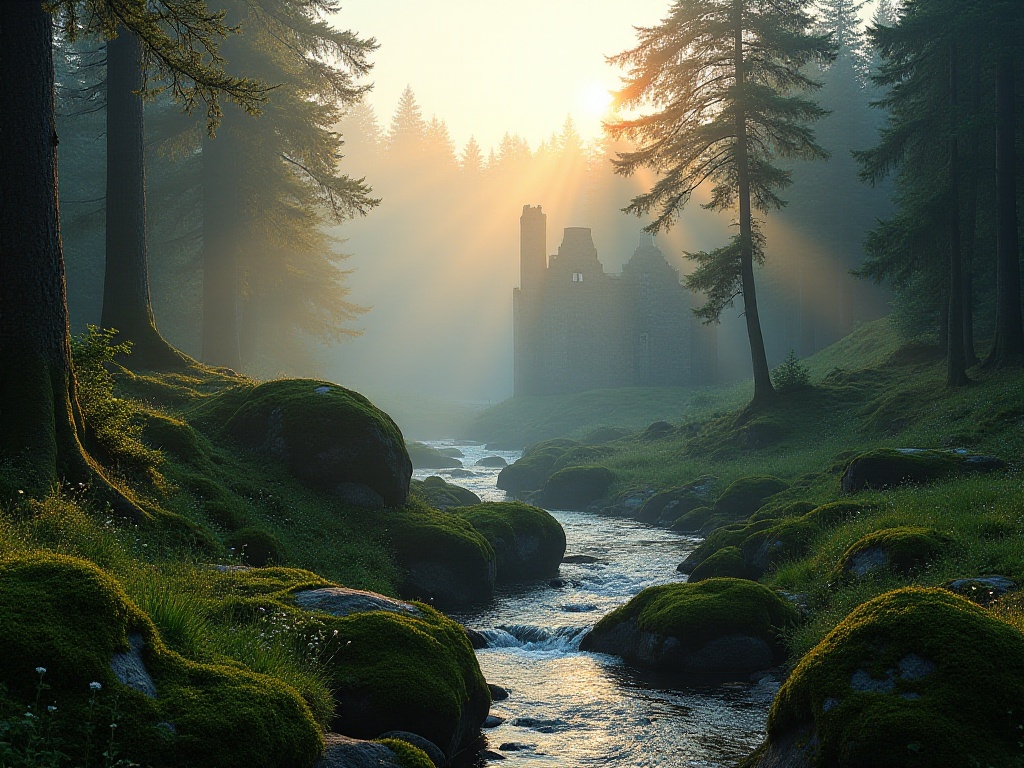
Origins
In my childhood, during summer vacations, my parents would take me to stay at my grandmother's village. Back then, I always complained, finding the countryside stuffy, hot, and mosquito-infested, with nothing interesting to do. I just wanted to return to the city. When grandmother enthusiastically served freshly picked watermelon from the field, I would barely taste it, not appreciating this "rustic joy."
Now looking back, those scenes I once found annoying have become my most precious memories. Being awakened by roosters crowing at dawn, pushing open the creaking wooden window to feel the dewy morning breeze; sitting in bamboo chairs in the courtyard at dusk, listening to grandfather's stories about his ox-cart journeys through villages; lying on the bamboo bed on the porch at night, counting countless stars while falling asleep to the chorus of frogs. These slow-paced life moments have become precious in today's fast-paced urban life.
Interestingly, I've noticed more and more young people heading to the countryside recently. My social media feed frequently shows friends checking in at obscure villages or staying at hidden farmstays. This phenomenon makes me wonder: what's drawing us "digital natives" to rediscover rural charm?
Decoding Rural Tourism
When it comes to rural tourism, everyone might have different interpretations. Some think it's just farmhouse entertainment, others consider it pastoral vacation, and some equate it with eco-tourism. Actually, this concept is much richer than we imagine.
After reviewing extensive materials, I found even academics have varying definitions of rural tourism. The EU and OECD's definition is surprisingly simple: "tourism activities occurring in rural areas." This seems too broad - does that mean any suburban trip counts as rural tourism?
In comparison, domestic scholars' definitions are more detailed. I particularly appreciate Professor Wang Bing's view that rural tourism is a tourism experience integrating agricultural cultural landscapes, ecological environment, farming activities, and folk customs. Though academic-sounding, this definition is quite precise.
In simple terms: rural tourism isn't just about visiting the countryside, but experiencing all aspects of rural life. From visible natural scenery to tangible farming culture, to the felt rural atmosphere - all are important components of rural tourism.
For instance, you can learn rice planting from farmers, experiencing the truth behind "every grain in your bowl is the fruit of hard labor"; learn wine-making from village grandmothers, hearing stories behind the craft; or even participate in village celebrations and funerals, experiencing authentic rural community spirit.
This comprehensive experience makes rural tourism more than just sightseeing - it's a deep cultural immersion. It gives us city dwellers a chance to truly understand "what rural life is like," rather than relying on imagination and speculation.
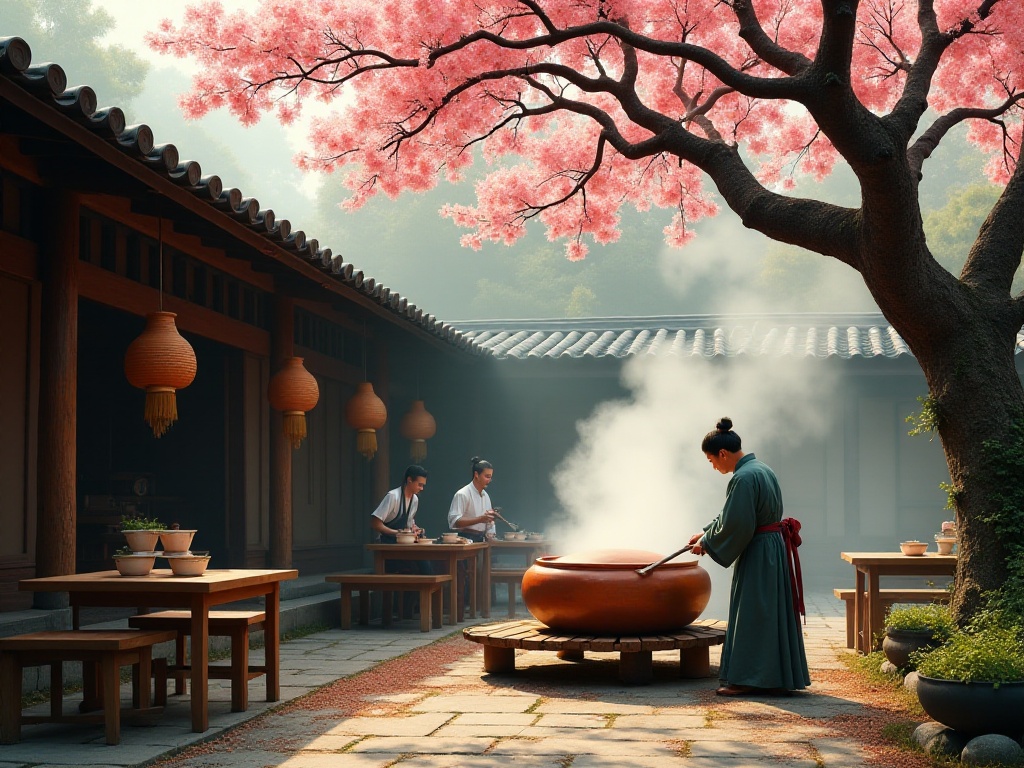
Different Ways to Play
Rural tourism nowadays offers diverse experiences. Last summer, I visited a small village in Anji, Zhejiang, where I found an impressive paddy field café. The café was a two-story wooden building in the middle of rice fields, with a coffee bar and indoor seating on the first floor and an open terrace on the second.
That afternoon, I sat on the second-floor terrace with a pour-over coffee. The barista, a bearded young man, had reportedly quit his job at a popular Hangzhou café to return home. While brewing my coffee, he shared why he chose to return for entrepreneurship. "In the city, coffee is a symbol of urban culture, but here, I want it to be a bridge connecting urban and rural life," he said, his eyes sparkling.
Holding my coffee, I took in the surroundings: endless rice fields with golden ears swaying in the wind; misty mountains in the distance; farmers skillfully harvesting rice in the fields. Such scenes are impossible to experience in traditional farmhouse entertainment.
Rural tourism projects now offer endless possibilities. Throughout last year, I visited over a dozen distinctive villages nationwide, each offering unique surprises.
At a pottery studio in the fields of Wuyuan, Jiangxi, I learned pottery from a master. The fifty-something local master had studied in Jingdezhen in his youth. His studio was in his old house, filled with pottery. He taught us from basic clay kneading to creating our own pieces. Sitting at the old wheel, hands wrapped in wet clay, watching the clay gradually take shape - it was incredibly therapeutic.
At a farm in Dali, Yunnan, I participated in a three-day baking experience. The farm owners were "new farmers" who grew wheat at the foot of the mountains and built their own mill. We made European bread using freshly ground flour, incorporating local ingredients like roses and walnuts. Though it was tiring to start preparing dough at 5 AM, seeing our handmade bread come out of the oven brought a sense of achievement impossible to find in any trendy city bakery.
Most memorable was a tea garden experience in Pu'er, Yunnan last year. At a century-old tea garden, I learned the complete process of tea picking and frying from a sixty-something tea farmer. Tea picking has its techniques - tea leaves picked in different seasons and times have different tastes and aromas. Tea frying is even more technical, requiring years of experience in controlling heat and handling techniques. Through this experience, I truly understood the meaning of "a leaf's thousand-year wait."

Urban-Rural Differences
In my view, rural tourism's most attractive aspects are its "slowness" and "authenticity" - precisely what urban life lacks.
In cities, we're accustomed to fast-paced living. We order fresh-ground coffee through delivery apps in the morning, book workspaces via phone apps at lunch, and hail rides home through car-service apps after work. We pursue efficiency and value speed, feeling we'll fall behind if we slow down or get eliminated if we stop.
But in the countryside, everything naturally slows down. Instead of alarm clocks, we're awakened by morning light and birdsong; instead of convenient takeout, we must select, wash, and cook vegetables ourselves; without urban noise, even time seems to pass more slowly.
This "slowness" isn't the opposite of efficiency, but a return to a way of life. In the countryside, you discover many things naturally take time: wine needs time to ferment, pickles need time to flavor, seeds need time to sprout. These ordinary life scenes make us reconsider what's truly important.
Speaking of "authenticity," many villages are striving to create their own characteristics. Take Wuyuan, Jiangxi, which I visited - this small mountain village became nationally famous for its rapeseed flowers. Every spring, mountains of golden rapeseed flowers complement ancient Hui-style architecture, creating a breathtaking scene. But Wuyuan's charm lies not just in these surface views, but in its preserved lifestyle and cultural traditions.
In Wuyuan, I stayed at a century-old house converted into a guesthouse. The owner, a retired teacher, renovated his ancestral home while preserving all original architectural structures and decorative features. In the morning, you can see elderly people practicing tai chi in the courtyard; in the evening, you can hear neighborhood grandmothers humming Hui opera tunes in their yards. These aren't scenes staged for tourists, but authentic life moments.
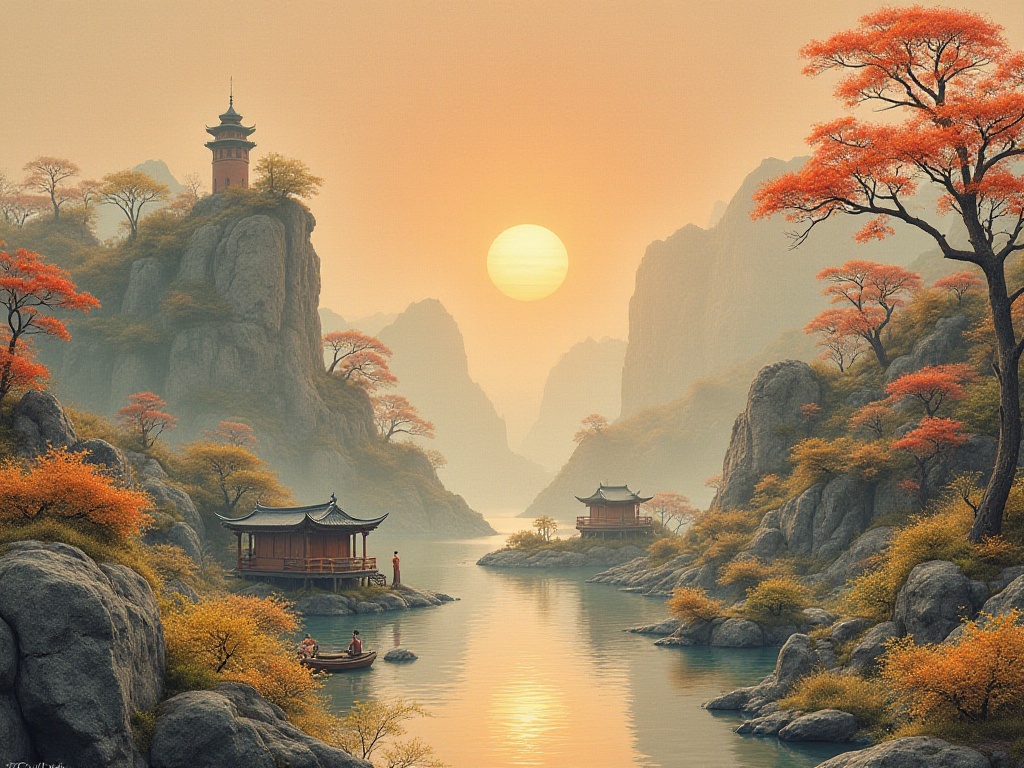
Upgraded Experiences
Rural tourism has now transcended geographical limitations. Many seemingly remote places have become popular "internet-famous" spots among young people precisely because they've maintained their most original features.
Take Dali, Yunnan - though not particularly accessible, this "escape from the world" feeling has made it a holiday paradise for young people. There, you can stay in farmhouses at the foot of Cangshan Mountain, pick vegetables with locals in the morning, cook local specialties with your host at noon, sunbathe and read in the courtyard in the afternoon, and chat with other travelers around the fire pit at night. This lifestyle makes you completely forget urban chaos.
In recent years, rural tourism has constantly innovated. From early farmhouse entertainment to today's boutique guesthouse clusters, creative farms, and cultural creative bases, each upgrade brings fresh surprises.
In Anji, Zhejiang, I saw yoga classes in bamboo forests; in Yongtai, Fujian, I attended a folk music festival in ancient houses; in Congjiang, Guizhou, I experienced intangible cultural heritage courses in Dong ethnic minority folk songs. These novel approaches are changing people's stereotypes about rural tourism.
Notably, many villages now focus on developing cultural creative products. For example, the handmade silver jewelry studios I saw in Fenghuang Ancient Town, Hunan, and ceramic artist studios in Jingdezhen, Jiangxi, add cultural depth and creative height to rural tourism.
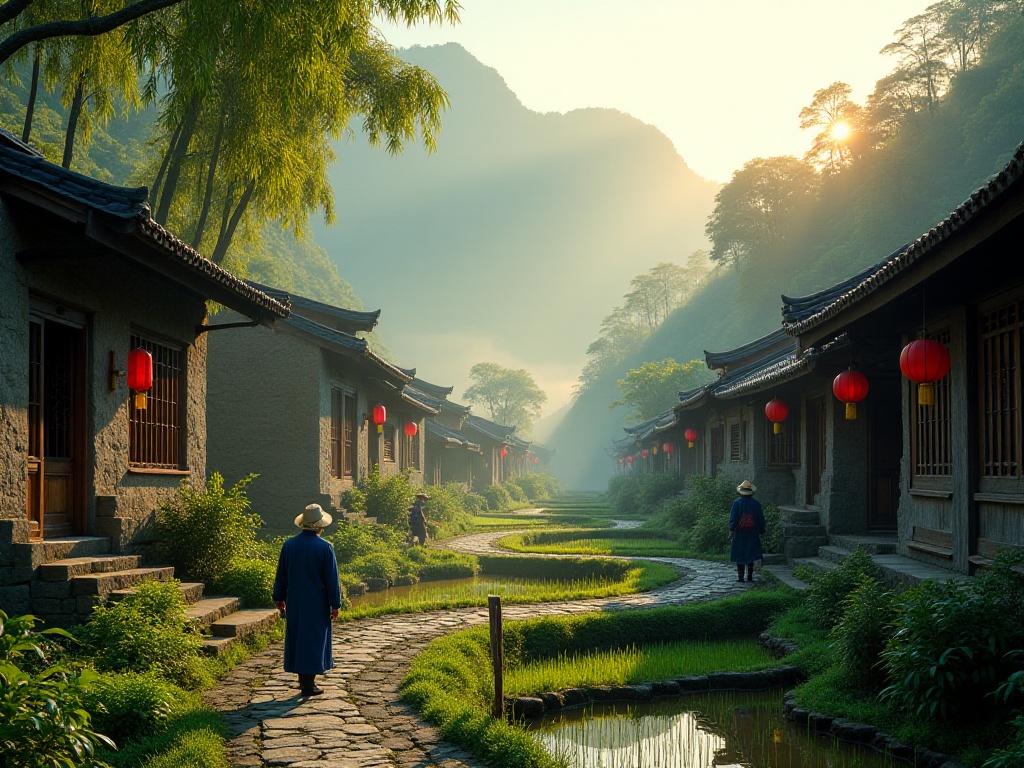
A Promising Future
Regarding rural tourism's future development, I see both opportunities and challenges. On one hand, the country is strongly promoting rural revitalization strategies, with all regions actively creating distinctive rural tourism projects. Statistics show that last year alone, national rural tourism received over 3 billion visitors with revenue exceeding 1.8 trillion yuan. These numbers reveal rural tourism's huge development potential.
On the other hand, we're seeing more young people focusing on rural areas. Some seek breathing space from urban pressure, others yearn for pastoral life and want to try something different, while others are interested in traditional culture and want to deeply understand rural China. Whatever the reason, rural areas are attracting the younger generation in entirely new ways.
In many villages I've visited, I've met numerous "new farmers." They include young people returning from big cities to start businesses, white-collar workers who gave up high salaries for pastoral life, and entrepreneurs specifically seeking rural business opportunities. They bring new concepts and vitality to villages while exploring new possibilities for rural development.
For example, in a Zhejiang mountain village, I met a post-90s entrepreneur. He converted vacant old houses into guesthouses while developing organic agriculture and organizing various farming experience activities. Most uniquely, he established a "cloud farm" platform where city dwellers can adopt fruit trees or vegetable plots online, watch their adopted agricultural products grow through livestreams, and receive fresh produce during harvest season. This online-offline combination model preserves rural authenticity while meeting modern needs.
In Wuyuan, Jiangxi, I met a couple who were formerly designers in Shanghai but now run a creative studio in the village. They integrate Hui-style architectural elements into modern design, developing cultural creative products popular among young people. They also regularly hold workshops inviting young urbanites to experience traditional crafts.
These examples show me that rural tourism's future isn't just a simple tourism mode, but a new lifestyle and cultural inheritance method. It's becoming a bridge connecting urban and rural areas, allowing tradition and modernity, nature and humanity to coexist harmoniously.
Finally, I want to say that rural tourism isn't just a way of traveling, but a life attitude. It gives us a chance to pause, reexamine our lifestyle, and consider what's truly important. In this fast-paced era, perhaps we all need such an opportunity to slow down and be still. What do you think? Welcome to share your rural tourism stories in the comments.
Next
Hidden Gems in Rural Vietnam: Rediscovering Serenity Post-Pandemic
As the world emerges from the cocoon of lockdowns, Vietnam's countryside unfurls its wings, revealing a kaleidoscope of hidden treasures. The pandemic's pause has birthed a new era of travel, one that whispers of untrodden paths and authentic encounters. Rural Vietnam, once the backdrop to frenetic city escapes, now takes center stage in a renaissance of rustic allure.
Complete Guide to Rural Tourism in Hokkaido: A Paradise for All Seasons
Discover selected rural tourism destinations worldwide, featuring Colorado hot springs, European castle ruins, and Asia-Pacific natural landscapes, showcasing unique scenery and cultural heritage
Exploring Hokkaido: A Rural Journey Through Four Seasons
Explore distinctive rural tourism destinations worldwide, from the natural landscapes of Colorado and Alaska to the cultural heritage sites in Romania and Portugal, and the scenic beauty of Hokkaido, Japan. Discover unique rural experiences combining nature, culture, and local traditions
Next
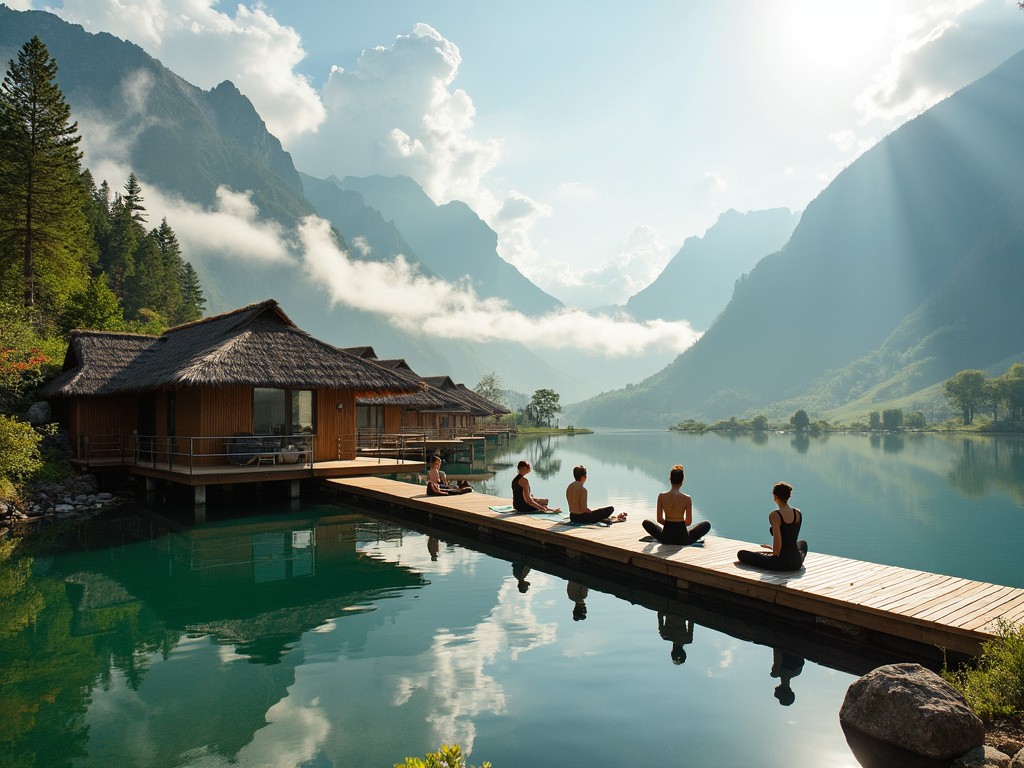
Hidden Gems in Rural Vietnam: Rediscovering Serenity Post-Pandemic
As the world emerges from the cocoon of lockdowns, Vietnam's countryside unfurls its wings, revealing a kaleidoscope of hidden treasures. The pandemic's pause has birthed a new era of travel, one that whispers of untrodden paths and authentic encounters. Rural Vietnam, once the backdrop to frenetic city escapes, now takes center stage in a renaissance of rustic allure.
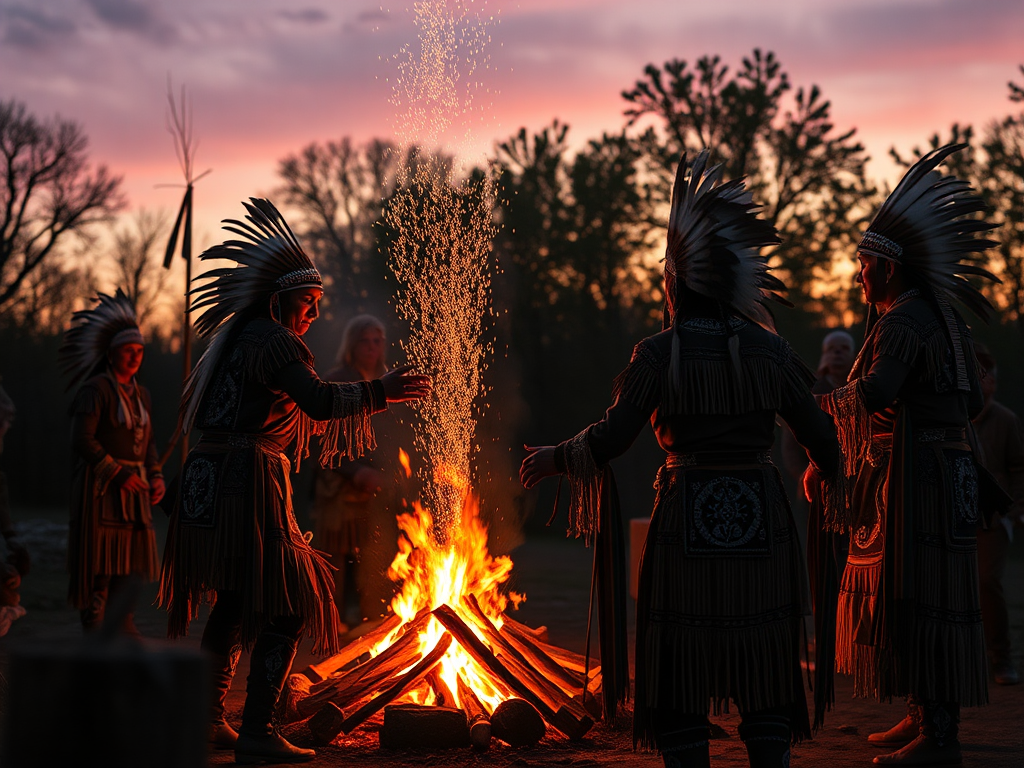
Complete Guide to Rural Tourism in Hokkaido: A Paradise for All Seasons
Discover selected rural tourism destinations worldwide, featuring Colorado hot springs, European castle ruins, and Asia-Pacific natural landscapes, showcasing unique scenery and cultural heritage
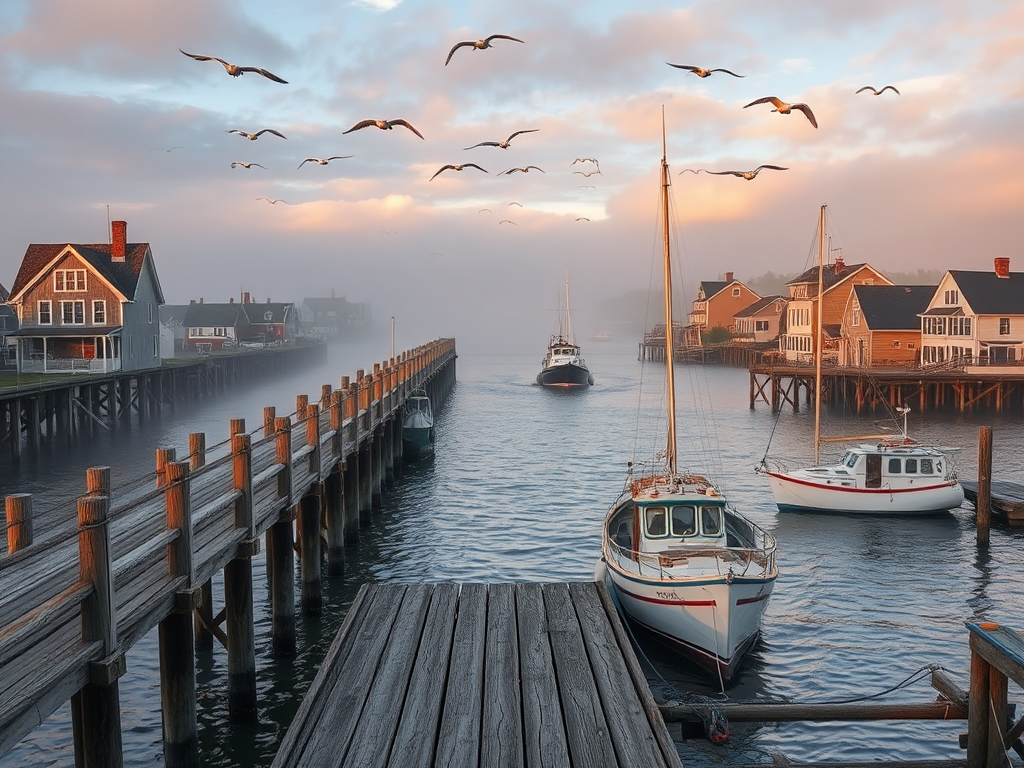
Exploring Hokkaido: A Rural Journey Through Four Seasons
Explore distinctive rural tourism destinations worldwide, from the natural landscapes of Colorado and Alaska to the cultural heritage sites in Romania and Portugal, and the scenic beauty of Hokkaido, Japan. Discover unique rural experiences combining nature, culture, and local traditions

